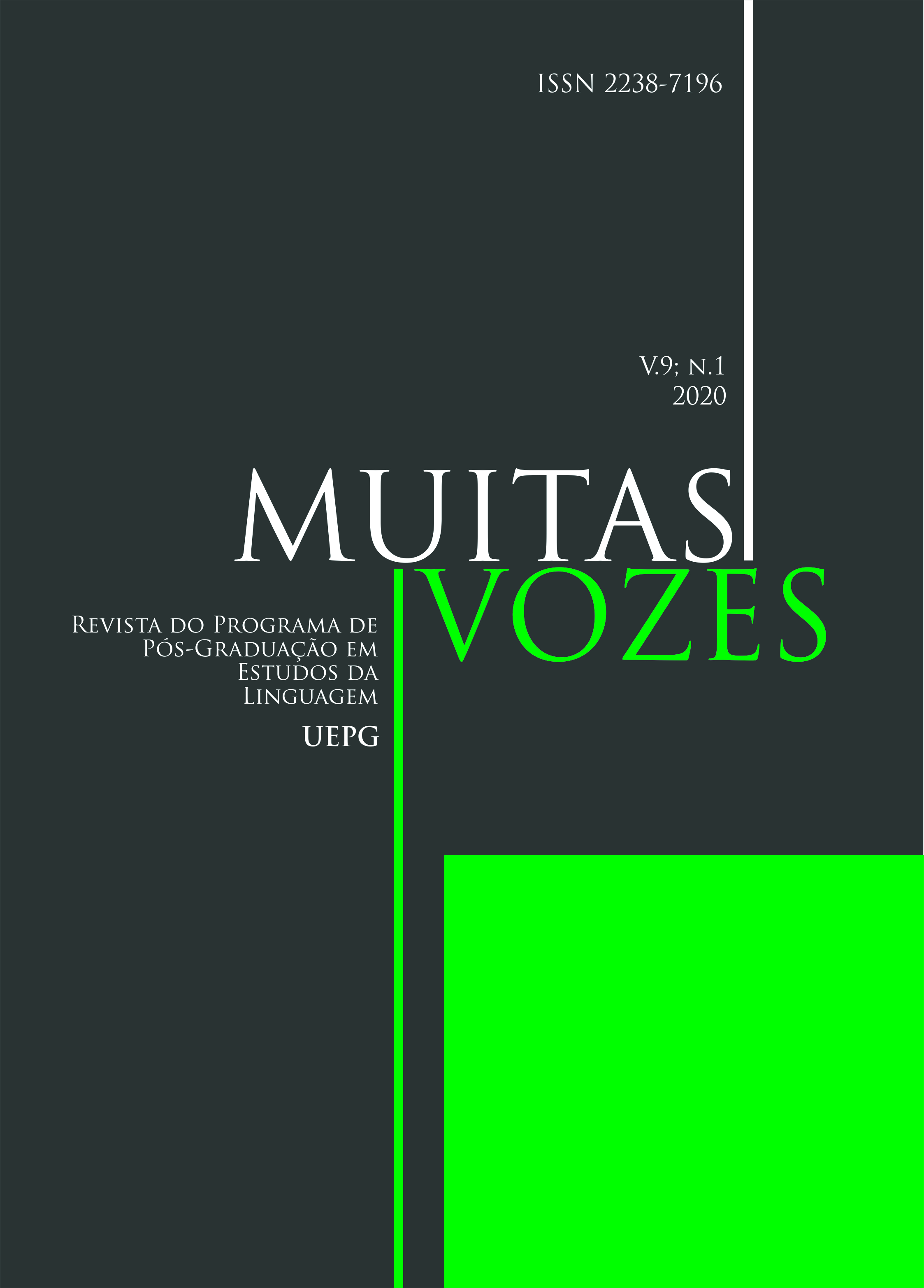SUBJECT INDETERMINATION IN BRAZILIAN PORTUGUESE: INVESTIGATING SOME PRONOMINAL STRATEGIES IN FINITE CLAUSES
Abstract
In this article we analyze strategies of subject indetermination in finite clauses in Brazilian Portuguese (BP), through the investigation of a recent spoken language corpus, LinguaPOA, that contains transcribed speech, collected between 2015 and 2016 from sociolinguistic interviews. The basic idea here is to describe and list the strategies of subject indetermination in contemporary spoken BP in order to verify if Duarte’s (1995, 2007, 2012, among others) hypothesis that BP is privileging clauses with overt pronominal determinate subject is also valid with indeterminate subjects. In addition to investigating the corpus and analyzing strategies of subject indetermination, we compare our results to those found by Vargas (2010, 2012), who investigated subject indeterminacy in a written language corpus composed by theatre plays from the early 1990s. Our main goal comparing these two synchronisms (early 1990s and 2015-2016) is to start a contrastive analysis to verify whether there has been a change in the pronominal arbitrary reference strategies used to indeterminate the subject, in addition to check whether there is a preference for null or overt pronominal form in strategies of subject indetermination in BP in these two synchronies. We argue that the entry of new forms of indetermination in the BP grammar system and the preference for the use of overt pronouns for arbitrary reference (as we will show) are an indication of the change that BP has been going through in terms of favoring the expressed subject over the null subject. We relate our empirical findings to the cascade effect already anticipated by Labov (1972), in which changes in the pronominal framework of BP, especially those that have been established since the middle of the 20th century, affect different aspects of the grammar of the language, such as strategies of subject indetermination.
Downloads
Downloads
Published
How to Cite
Issue
Section
License

Este obra está licenciado com uma Licença Creative Commons Atribuição 4.0 Internacional.
Transferência de direitos autorais: Caso o artigo submetido seja aprovado para publicação, JÁ FICA ACORDADO QUE o autor AUTORIZA a UEPG a reproduzi-lo e publicá-lo na REVISTA MUITAS VOZES, entendendo-se os termos "reprodução" e "publicação" conforme definição respectivamente dos incisos VI e I do artigo 5° da Lei 9610/98. O ARTIGO poderá ser acessado tanto pela rede mundial de computadores (WWW - Internet), como pela versão impressa, sendo permitidas, A TÍTULO GRATUITO, a consulta e a reprodução de exemplar do ARTIGO para uso próprio de quem a consulta. ESSA autorização de publicação não tem limitação de tempo, FICANDO A UEPG responsável pela manutenção da identificação DO AUTOR do ARTIGO.



